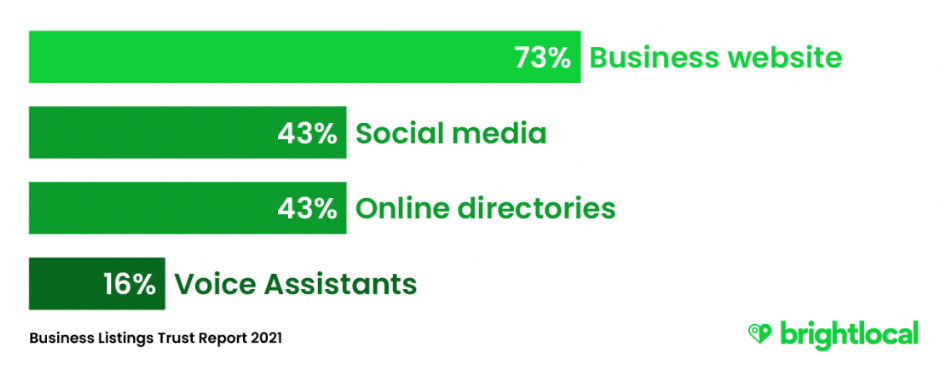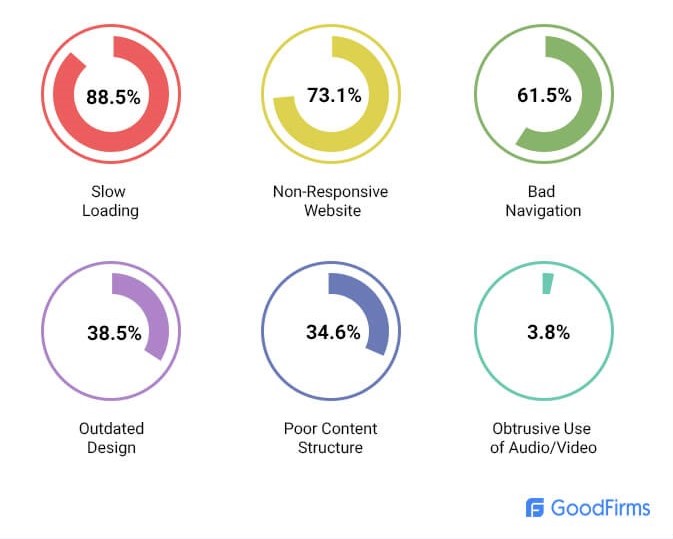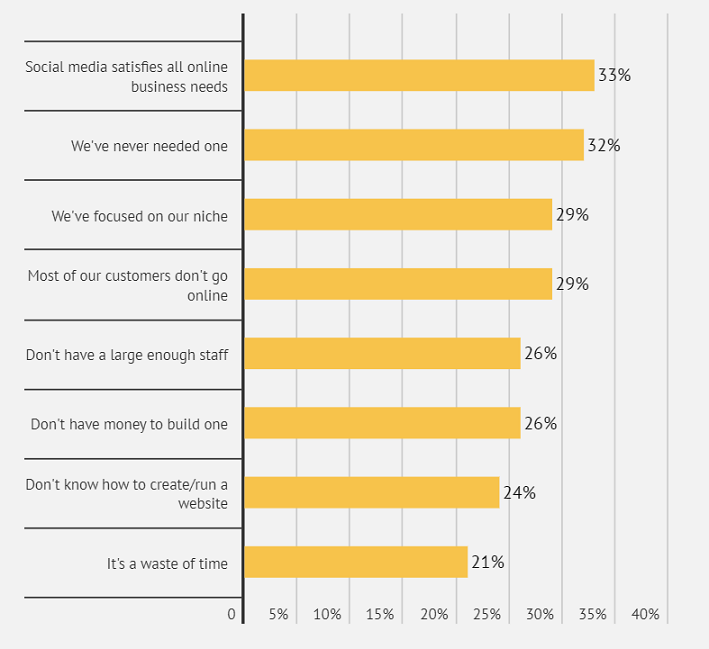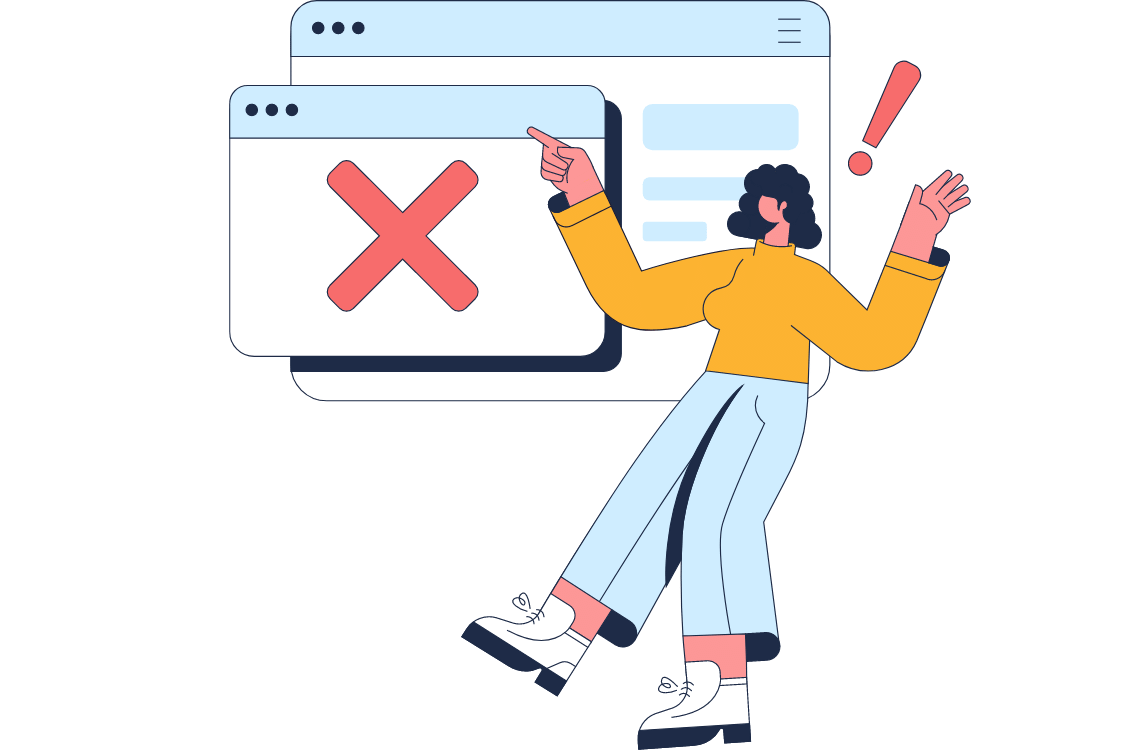It’s a sad fact of life, but most websites fail.
So what makes these sites fail? And more importantly, how can you avoid being one of them?
In this article, we will explore nine reasons why most websites fail and offer some tips on how you can make sure your site doesn’t meet the same fate.
1. Proper Planning Is Important
There are many reasons why websites fail, including a lack of planning and forethought.
When creating a website, it is important to have an overall plan in mind for what the site should accomplish, who the target audience is, and how you are going to measure success.
Without these key elements in place from the outset, many websites simply don’t have the foundation they need to succeed.
⚡Learn more ➡️ 46 Website Ideas for Beginners and Pros
2. Websites Need Attention
Beyond planning issues, another common issue that causes websites to fail is a lack of attention from site owners.
Your website is your business’s first impression to potential customers. Considering the fact that over 70% of consumers trust the information on business websites, the neglected site will not only make you look unprofessional but also put potential customers at risk.
The Sources Consumers Most Expect To Hold Accurate Information on a Local Business

Many people simply create a website and then forget about it, expecting it to magically attract visitors. In reality, websites require constant care and maintenance in order to remain relevant and successful.
This includes regularly updating content, performing technical maintenance, and engaging with visitors.
3. Inadequate Promotion
A website might have great content and the perfect design, but without the proper promotion, it will never get off the ground.
Promotion is one of the most important aspects of website success and involves a combination of techniques such as SEO, PPC, email campaigns, social media marketing, and more.
Without a comprehensive promotional plan in place, it can be difficult to spread awareness about your site and attract visitors.
4. User Experience Matters
When creating a website, always consider the user’s experience. The design of your site should be clean and intuitive, with easy navigation and comprehensive content that answers users’ questions.
Additionally, sites should be optimized for all devices so that the users can use any device or browser to access your site. Sites with a poor user experience will quickly lose visitors and fail to reach their potential.
According to GoodFirms research, about 88% of respondents said that slow loading was the primary reason to leave websites, lack of responsiveness was second at 73%, followed by bad navigation with 61.5%.
Top Reasons for Visitors To Leave Websites

5. Right Tools and Solid Technical Foundation
Websites need the right tools and a solid technical foundation in order to succeed.
This includes selecting the right hosting provider, using up-to-date content management systems, and investing time into making sure all aspects of the site are functioning properly.
Without these key elements in place, it will be difficult for your site to reach success.
⚡Check also ➡️ 23+ Best WordPress Tools (Hand-Picked)
6. Market Research
Market research is a critical component of website success.
Before launching your site, it’s important to understand the needs and preferences of your target audience so you can create content that meets those requirements.
Additionally, understanding things like competition in the space and what trends are currently popular will help you create a more successful website.
7. Lack of Resources
It takes time, money, and expertise to build a successful website.
According to a survey conducted by Digital.com, about 26% of small business owners don’t have enough budget to create websites, while 21% think it’s a waste of time.
Why Doesn’t Your Business Have a Website

If you are serious about building a successful website, make sure you have enough resources before starting your project.
If you have put the effort into proper planning, then you shouldn’t run into this issue, as you will know what resources you need and how to allocate them effectively before launching your website.
8. Unproductive Focus
Another issue that causes many websites to fail is an unproductive focus.
Many website owners spend too much time and energy on the wrong tasks, such as constantly tweaking the design of their site or adding features that are not necessary for success.
It’s important to stay focused on what matters most, such as creating content and promoting your site.
⚡Check also ➡️ How To Write Copy for a Website (Best Practices and More)
9. Success Takes Time
Yes, it may sound like a cliché, but most websites take time to become successful. It’s important to understand that success doesn’t happen overnight and requires plenty of hard work and dedication.
Many website owners give up too soon, expecting to see miraculous results. While there are no shortcuts, putting in the time and effort will eventually pay off.
Conclusion
In conclusion, websites fail for a variety of reasons ranging from planning issues to technical problems and lack of resources. To avoid being part of these failures, it’s important to plan ahead and be prepared for success.
Additionally, focus on activities such as user experience optimization, comprehensive promotion campaigns, and market research so you can create a successful site that meets the needs of your target audience.
Finally, remember that success takes time – don’t give up too soon! With careful planning and hard work, you can make sure your website succeeds in the long run.
🤓 Want to learn more about websites?
Browse our blog for more interesting tips regarding websites, WordPress, digital marketing, and more.
⬇️Further Reading:
- 25+ Website Statistics That Will Intrigue You
- How to Build a Website (Blog) From Scratch: A Step-By-Step Guide
- How To Create Images for Website (2 Methods)
- How To Check How Many Pages a Website Has (a Short Guide)
- How To Check When a Website Was Last Updated?
- How to Quickly Export (Scrape) All Website URLs – A Smart Method
- What’s the World’s Most Translated Website? (The Answer May Surprise You)

